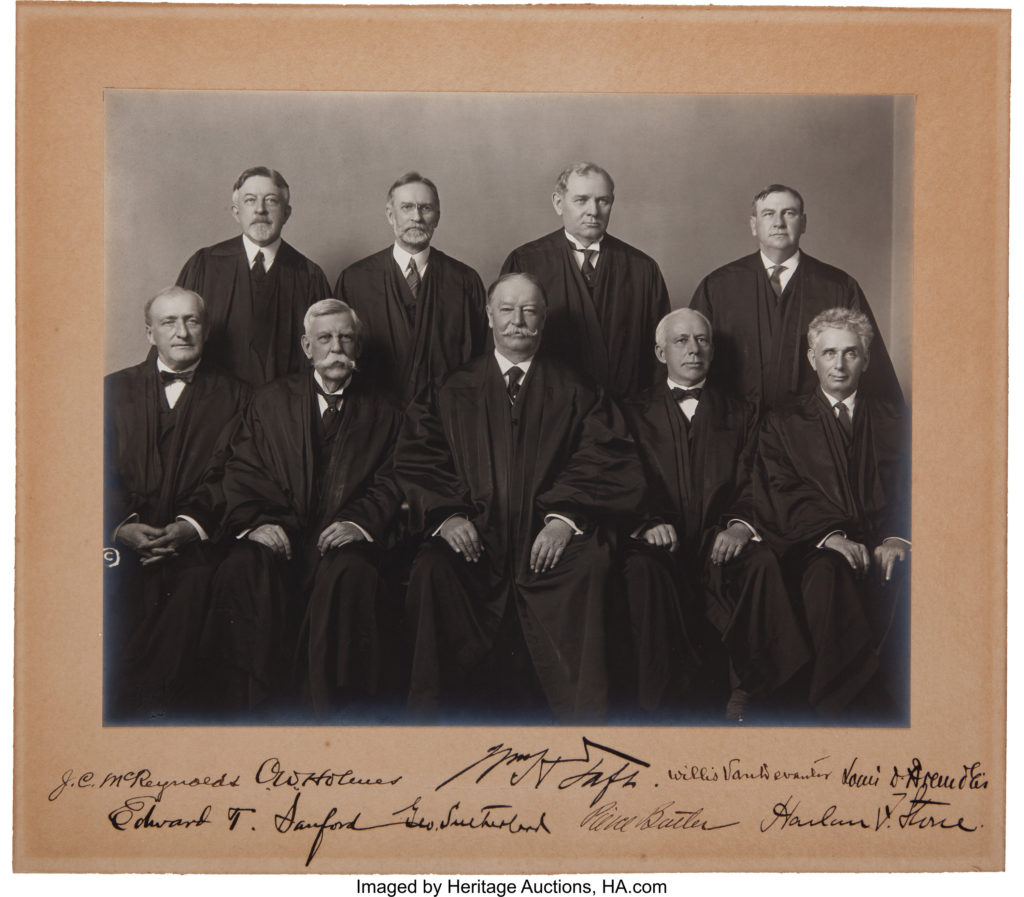
By Jim O’Neal
It is that time again when the news will be filled with predictions of pestilence, war, famine and death (the Four Horsemen of the Apocalypse) as President Trump tees up his next candidate for the Supreme Court. One side will talk about the reversal of Roe v. Wade as an example of the terrible future that lies ahead. The other side will be quick to point out that this fear-mongering first started in 1981 when Sandra Day O’Connor (the first woman to serve on the court) was nominated by President Reagan and that nothing has happened in the intervening 37 years.
My prediction is that regardless of whoever is confirmed, there will be no evidence from the past on any opinions on “Roe” and he or she will have been groomed by the “Murder Boards” to answer that it is settled law. Murder Boards are groups of legal experts who will rehearse the nominee on how to answer every possible question the Senate Judiciary Committee might ask on any subject, not just Roe, in their role in giving advice and consent. It produces what former Vice President Joe Biden described as a “Kabuki dance” when he was in the Senate.
The questioning does produce great public theater, but it is a tradition that dates to 1925 when nominee Harlan Stone actually requested he be allowed to answer questions about rumors of improper ties to Wall Street. It worked and he was confirmed by a vote of 71-6 and would later serve as Chief Justice (1941-46). In 1955, John Marshall Harlan II was next when Southern Senators wanted to know his views on public school desegregation vis-à-vis Brown v. Board of Education. He was also successfully confirmed 71-11 and since then, every nominee to the court has been questioned by the Senate Judiciary Committee. The apparent record is the 30 hours of grilling Judge Robert Bork experienced in 1987, when he got “Borked” by trying to answer every single question honestly. Few make that mistake today.
Roe v. Wade was a 1973 case in which the issue was whether a state court could constitutionally make it a crime to perform an abortion, except to save the mother’s life. Abortion had a long, legal history dating to the 1820s when anti-abortion statues began to appear that resembled an 1803 law in Britain that made it illegal after “quickening” (start of fetal movements) using various rationales such as illegal sexual conduct, unsafe procedures and the state’s responsibilities in protecting prenatal life.
The criminalization accelerated from the 1860s and by 1900, abortion was a felony in every state. Despite this, the practice continued to grow and in 1921, Margaret Sanger founded the American Birth Control League. By the 1930s, licensed physicians performed an estimated 800,000 procedures each year. In 1967, Colorado became the first state to decriminalize abortion in cases of rape, incest or permanent disability of the woman. By 1972, 13 states had similar laws and in 1970, Hawaii was the first state to legalize abortion on the request of the woman. So the legal situation prior to Roe was that abortion was illegal in 30 states and legal in the other 20 under certain conditions.
“Jane Roe” was an unmarried pregnant woman who supposedly wished to terminate her pregnancy and instituted an action in the U.S. District Court for the Northern District of Texas. A three-judge panel found Texas criminal statues unconstitutionally vague and the right to choose to have children was protected by the 9th through the 14th Amendments. All parties appealed and on Jan. 22, 1973, the Supreme Court ruled the Texas statute was unconstitutional. The court declined to define when human life begins.
Jane Roe’s real name was Norma McCorvey and she became a pro-life advocate before she died and maintained she never had the abortion and that she was the victim of two young, ambitious lawyers looking for a plaintiff. Henry Wade was district attorney of Dallas from 1951 to 1987 and the longest serving DA in United States history. He was also involved in the prosecution of Jack Ruby for killing Lee Harvey Oswald. After he was convicted, Ruby appealed and the verdict was overturned, but he died of lung cancer and is constitutionally presumed innocent.
Stay tuned for the fireworks.
 Intelligent Collector blogger JIM O’NEAL is an avid collector and history buff. He is president and CEO of Frito-Lay International [retired] and earlier served as chair and CEO of PepsiCo Restaurants International [KFC Pizza Hut and Taco Bell].
Intelligent Collector blogger JIM O’NEAL is an avid collector and history buff. He is president and CEO of Frito-Lay International [retired] and earlier served as chair and CEO of PepsiCo Restaurants International [KFC Pizza Hut and Taco Bell].
